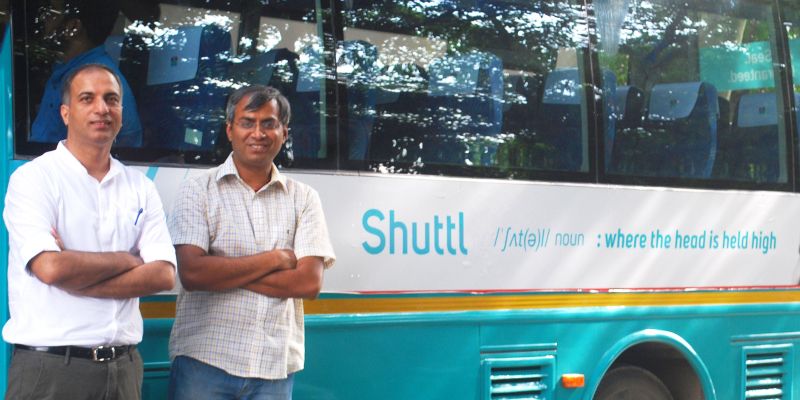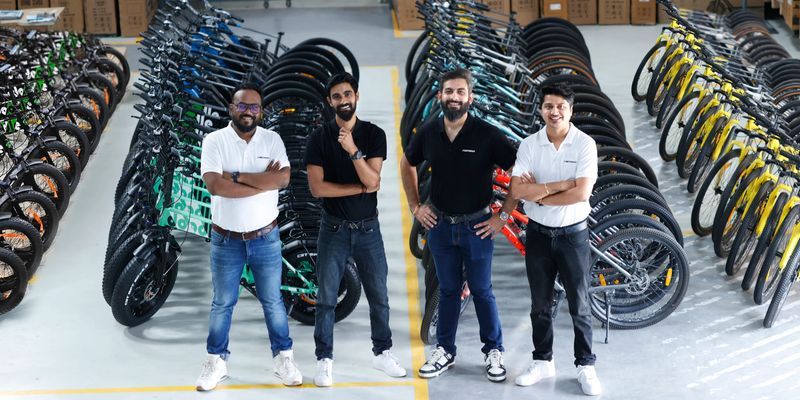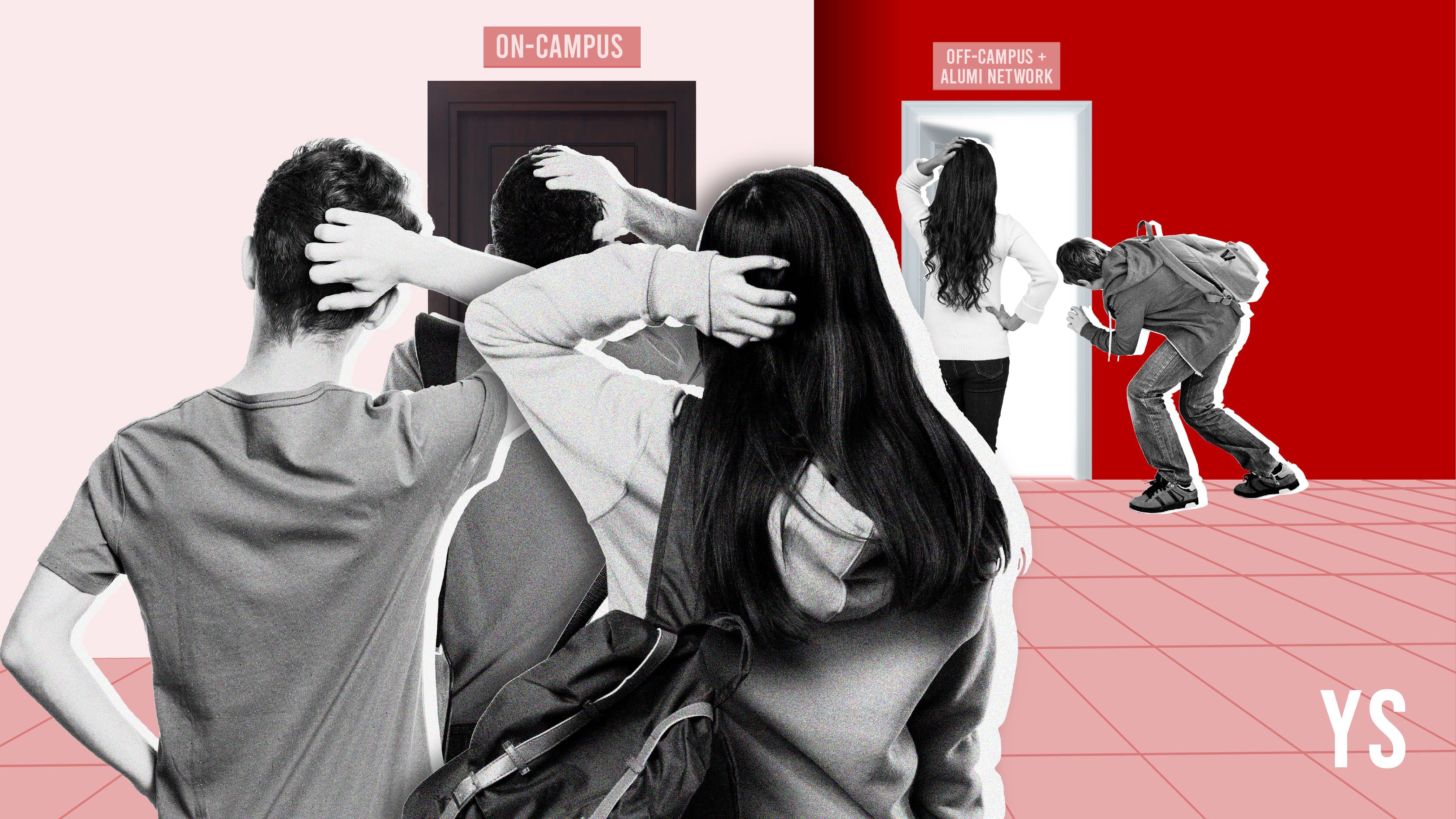Why Amazon chose online bus aggregator Shuttl to invest $11M
Gurugram-based bus aggregator platform Shuttl has raised $11 million in Series B funding led by Amazon Fund and Dentsu Ventures. Existing investors Sequoia Capital, Times Internet, and Lightspeed Ventures also participated in this round of funding.
When Amit Singh and Deepanshu Malviya started Shuttl in 2014-end, it wasn’t the first on-demand commuting service in the Delhi-NCR region. Ola and Uber were already making inroads in the book-a-ride market, but the problem was far from resolved. Cars don’t offer economies of scale, and buses were overcrowded.
Having worked in Mumbai, Amit was familiar with the practice of one ‘holding’ a place in a bus for the other, and this simple idea led to the birth of Shuttl. Later, when he began working with Deepanshu at Jabong, the problem of buses being overcrowded led to them joining hands to start Shuttl.
While Ola and Uber focus on cars, Amit and Deepanshu went for buses. The team has on board over 350 bus vendors. They started off by meeting transporters in different parts of Delhi.
Starting with a rented Innova, and a basic ride-hailing app, the two would visit key bus stops in Gurugram, and sell the Shuttl, and had soon touched a few hundred rides.
“People don’t want to be stuck in traffic. The number of cars on the road is high. If the number of buses increase, the number of vehicles will reduce because the number of people in buses can be higher,” Amit explains.
Vendors are on-boarded on the platform on a rental model, where the Shuttl team pays them a percentage of the earnings. The routes are decided based on the density and number of commuters.
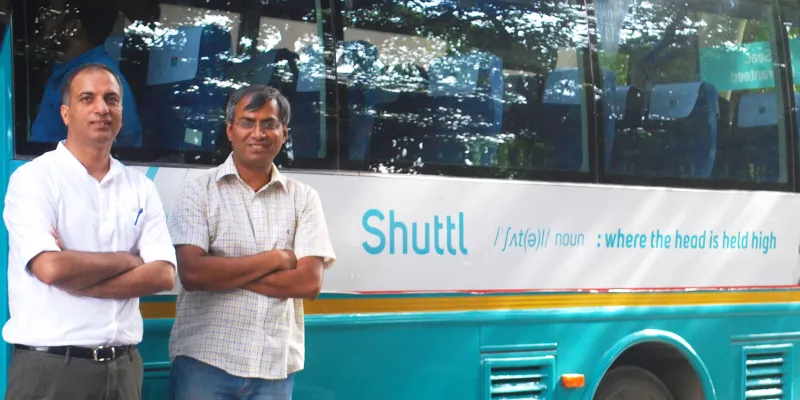
The Shuttl platform today offers over 45,000 rides a day, with over 700 buses and 150 routes in seven cities across the country. The service is available through a mobile app, and there are three steps to book the service - register an account on the app, pick a boarding point, drop point, and time of commencement, and get your ride pass.
The subscription model charges a customer between Rs 1,800 and Rs 2,000 for a monthly pass of 20, 30 and 40 rides in a month, and drivers are paid for every trip they make, with an average payment of Rs 5,000 for two trips. Irrespective of the number of trips a customer makes, the driver is paid, and so are commissions.
Once the number of seats in a bus is filled, that timing is no longer open, ensuring buses aren’t overcrowded.
According to Shuttl’s filings with the Registrar of Companies, its post-operational revenue was at Rs 14.34 crore for the financial year 2016-17. Its net loss stood at Rs 59.07 crore.
While cities like Mumbai, Delhi, and Chennai already have a strong public transport network, it is not always convenient or comfortable.
The fund raise
Shuttl raised its first round of funding within three months of operations and today announced another round of $11 million from Amazon. It had previously raised $20 million led by Sequoia Capital. The latest funding will help the bus aggregator consolidate its position in the technology-enabled seat-based bus mobility market.
The investment will also allow Shuttl to expand its geographical reach, and serve more consumers across Indian cities. The team intends to begin expanding in Pune and Kolkata.
Amit Agarwal, Senior Vice President and Country Head, Amazon India, said, "By taking on the everyday urban commute, Shuttl is solving a large and relevant customer pain point. Amazon is impressed by Shuttl's journey so far and excited to back missionary founders and management teams."
Regulatory grey areas
Like others in the transport business, Shuttl faced its fair share of regulatory hurdles towards the end of 2015 and in early 2016. Regulators impounded a few buses, and forced the company to halt operations. Ola, which had launched Ola Shuttle, was also forced to cease operations.
Bengaluru’s ZipGo also faced several regulatory challenges.
According to the Regional Transportation Authority Office, Gurgaon, shuttle services cannot operate in the city as they don’t fall under the ambit of the Haryana Contract Carriage Permit Act 1988, 1993, 2001, 2004, and 2013.
Bharat Bhushan, Assistant Secretary at the RTA, had said in 2015:
"Ola and Shuttl have got licence to operate under the Stage Contract Act, which is valid for inter-city travel (without multiple stops in city limits). But they can ply in the city limits (intra-city) only under Contract Carriage Act [licence]. This is illegal, and we have started penalising them.”
The regulators said any company soliciting or canvassing customers in vehicles should take a licence for the same. Any company can take a permit under the Contract Carriage Act, but that allows it only to transport passengers from one point to another and they can’t pick up or drop passengers en route.
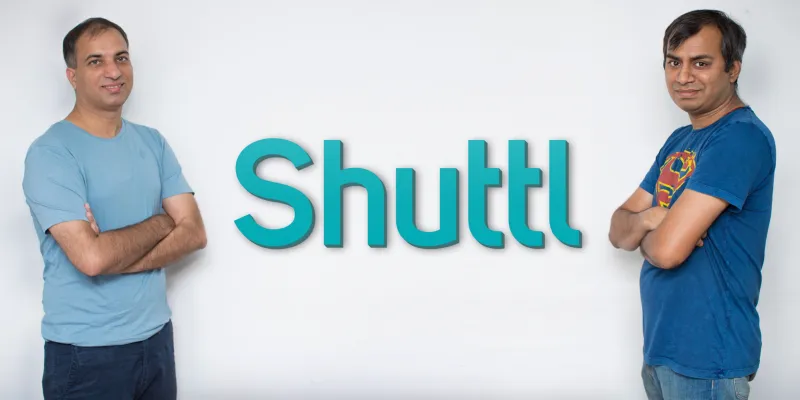
Connecting passengers and drivers through a web-based app makes these companies solicitors and they must operate under the Contract Carriage licence as per Section 93 of the Indian Motor Vehicle Act.
The norms, however, are slowly changing. “The Contract Carriage Act has loopholes, and we are working closely with the government to bring in alternate transport services,” Amit explains.
Like Amit says, things are changing and this is evident from the fact that in April, Shuttl received the Urban Innovation Award at the 2018 "Happy Cities Summit” in Amaravati, Andhra Pradesh, and signed a memorandum of Understanding with the state government to run a pilot in the region, which has the potential to impact 3.5 million inhabitants by 2050.
Amazon keen on transport
One reason why Amazon might have considered it investment in Shuttl is that the global company has shown ken interest in the transportation space for close to a year now. In October 2016, it launched Amazon Ride, a regional shuttle programme for its employees in Seattle, US.
There have been several reports that suggest Ride could be expanded as a separate ride-sharing model across different parts of the country and on different routes.
"Commuting to work is difficult in our country given the state of traffic and limited public transportation in many cities. Close to 70 percent of traffic on Indian roads is made up by cars, but cars transport only 5-10 percent of the population. Amit and Deepanshu set out to create an alternative by allowing office goers to use a mobile app to book a guaranteed seat on a 26-50 seater Shuttl bus, enabling them to commute to and from work in air-conditioned comfort,” says Mohit Bhatnagar, Managing Director Sequoia, Capital.
The company has also partnered with companies like American Express, GMR, and Evalueserve. And, the Shuttl Founders say, they are just getting started.
As a growing number of people push to commute towards tech-intensive areas, the need for a reliable transport and shuttle service is only growing.
Paul Bernard, Director, Amazon Alexa Fund, which fuels voice technology startups, said, "Millions of people use shared transportation options for their everyday commute. Voice represents a new, convenient way for them to manage these types of daily routines, and we look forward to supporting Shuttl as they work to deliver this experience to Amazon Alexa customers across India."
As rising pollution and traffic snarls force people to revisit their daily commute options, ride-sharing and cab-pooling have seen some success. According to media reports, the market for bus aggregation is around Rs 60,000 crore.
There are other emerging players such as Poolmyride and Zify that offer ride-sharing services. Global giant BlaBla Car had raised $200 million in Series D in 2015, and its main focus has been on inter-city rides. Bengaluru-based Zipgo and Mumbai-based rBus offer bus commutes, riding the same space as Shuttl.
Why buses?
“On the one side, you have more seats than people, and the other side you have more people than seats. But what people need is one seat each. That product didn’t exist. We thought let’s build for that product, which has larger economies of scale and looks after comfort. The user doesn’t care if it is a bus, car, or metro. She wants to just reach point A to point B in a given time in the most comfortable way,” Amit says.
Booking a ride is simple but Shuttl gives much more – it gives the commuter, safety, comfort and security in one place. Buses, Amit says, are the most cost-efficient, space-efficient and carpet-efficient way of moving people in cities.
Shuttl is also adding many safety features to its buses like face-recognition and live-CCTV feed, particularly important for working women.
"At Shuttl our mission is to take the pain away from everyone’s commute and reduce congestion in cities via a seat-based smart bus option. We have shown that this can be done at scale. We will continue to improve the consumer experience, design more routes, and restore the dignity of commuting for millions of people,” Amit says.






